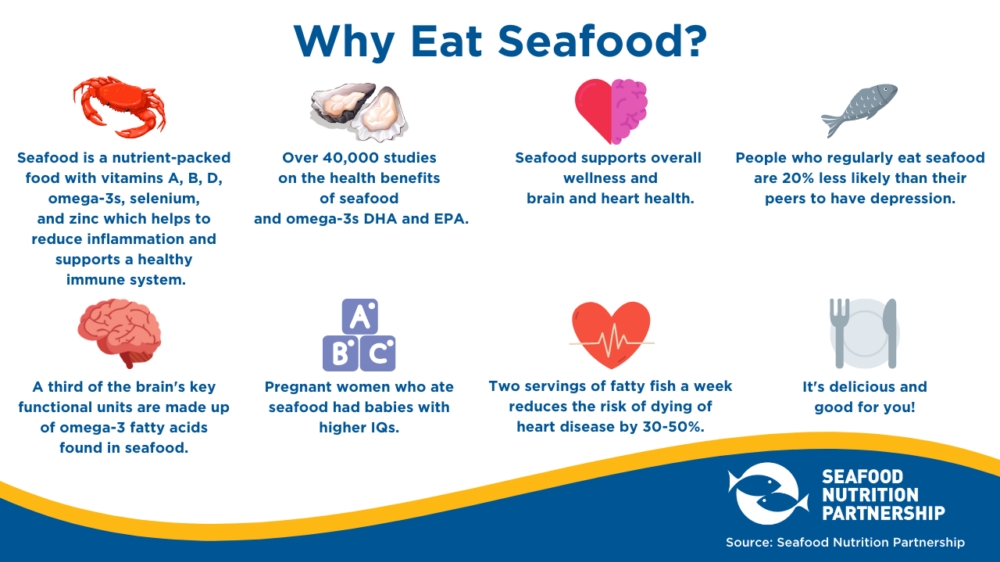
The health benefits of eating seafood are well-documented, providing a rich source of essential nutrients required for both physical and mental well-being. However, the ever-increasing growth of human populations is exerting immense pressure on the health of wild fish stocks, leading to overexploitation and a subsequent decline in nutrient availability. Furthermore, the looming shadow of climate change adds another layer of complexity to this issue, impacting both seafood access and nutrient value. Predictions suggest losses in nutrient availability by as much as 30% in low-income countries with a temperature rise of 4C. While aquaculture offers a promising solution to address some of these nutrient deficiencies, it is not immune to the effects of climate change. The future of nutritious seafood, therefore, faces significant challenges in ensuring equitable distribution, addressing overfishing, and mitigating environmental impacts. Strategies to achieve healthy, equitable, and resilient food systems are desperately needed to maintain nutritional security and global health equity.
The Health Benefits of Seafood and the Threats of Climate Change
Eating seafood offers many health benefits, including high protein content, essential omega-3 fatty acids, and various vitamins and minerals vital for our body. However, overfishing and climate change are threatening the availability of fish as a source of nutritious food, particularly among low-income countries. A study highlights the decline in nutrient availability from seafood due to overfishing and climate change, predicting a significant 30% drop by the year 2100 in tropical, low-income countries if temperatures rise by 4C. Climate change disrupts the natural cycles of nutrients in the ocean, affecting the availability of essential nutrients such as omega-3 fatty acids.
Aquaculture: A Potential Solution with Its Own Challenges
Aquaculture, the cultivation of aquatic plants and animals for human consumption, has been identified as a potential solution to the nutrient deficiencies caused by overfishing and climate change. It is a growing industry capable of providing a consistent, controlled supply of nutritious seafood. However, aquaculture is not without its challenges. Like wild fish stocks, aquaculture systems are also vulnerable to the effects of climate change, including rising temperatures and ocean acidification.
Ensuring Equitable Distribution and Sustainability
The future of nutritious seafood is not just about increasing production but also about ensuring equitable distribution and sustainability. Strong fisheries and aquaculture management are needed to facilitate equitable distribution of nutritious seafood. This includes implementing sustainable fishing practices to prevent overfishing and protect marine ecosystems. Additionally, aquaculture operations must also be managed responsibly to minimize environmental impacts.
Striving for a Healthy, Equitable, and Resilient Food System
The need for strategies to achieve a healthy, equitable, and resilient food system is pressing. These strategies must address the challenges of climate change, overfishing, and the environmental impacts of aquaculture. A recent United Nations call to action for ‘blue transformation’ emphasizes the need for sufficient aquatic food from fisheries and aquaculture in a sustainable manner. However, achieving this transformation will require concerted efforts from governments, industries, and consumers alike. By working together, we can ensure the continued availability of nutritious seafood for future generations while preserving the health of our oceans.
